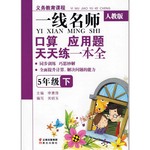题目内容
With the theme "Cherishing the earth's resources, transforming the mode of development and living a low-carbon lifestyle," China's Ministry of Land and Resources held a ceremony this Thursday to mark the 41st World Earth Day, aims to generate new ideas of resource-saving, especially among the younger generation. In fact, Chinese young urbanities are turning to the seemingly trendy low-carbon lifestyle.
But for the country as a whole to achieve a low-carbon economy, it could mean ordinary people paying more for electricity, water, gas or simply every purchase. Of necessity, a low-carbon economy would be the basis of China's economic growth, yet it comes with a high price tag. Everybody longs for fresh air, clean water and healthy surroundings. But, who is going to pay for that?
For those who are still working hard for the basic necessities of life, sharing the cost of a greener environment can be taxing. For those who are already victimized by environmental pollution, additional expenditure for saving the environment is hard to bear. Behind all the lofty goals and loaded phrases of climate change negotiations, in everyday terms, the Chinese want to know whether companies will make them pay the cost of saving energy or whether government would come up with new levels.
They have reasons to worry. The recent hike in the charges of utilities, such as natural gas, water and electricity, have led to widespread public grievance(抱怨,牢骚), for the increases were imposed without proper public hearing. Besides the practice of monopoly State-owned enterprises raising prices at will does not seem to bode well for a low-carbon economy.
The government has a responsibility to strengthen regulation of utility charges and make the pricing mechanism more transparent. In the age of the low-carbon economy, the Chinese government needs to strike a new balance between public welfare and business competitiveness.
How far the initiatives toward a low-carbon economy succeed depends on whether they truly benefit ordinary people and is accepted by them. The majority cannot sacrifice their life to build a greener world for the few.
The author probably agrees to call on ____________.
A. more and more citizens to devote themselves to the “Low-carbon economy” for the sake of our earth immediately
B. the rich to generally pay for the bill, which aims at saving our planet.
C. our government to take proper measures to make the “Low-carbon economy” benefit more people
D. all the big enterprises to reduce their prices to build a greener world
According to the passage, which of the following statements is NOT TRUE?
A. Some people can’t afford their everyday expenses, let alone pay for a better environment.
B. Putting forward the “Low-carbon economy” costs much.
C. The balance between public welfare and business competitiveness in China now is not that good for the “Low-carbon economy”.
D. Now that it’s hard for us to make the “Low-carbon economy” into practice, our government should put it to an end.
The “Low-carbon economy” __________.
A. is beneficial only to the rich people
B. has led to widespread public grievance
C. can be realized when pigs fly in the sky
D. cannot be called success before it has been fully considered
What’s the best title of the passage?
A. China reaches out for younger generation to promote low-carbon lifestyle.
B. Low-carbon economy, acceptable or not?
C. Who will get the most benefit from the Low-carbon economy?
D. Put forward the new policy and save the world.
【小题1】C
【小题1】D
【小题1】D
【小题1】B
解析:
略

 新课标同步训练系列答案
新课标同步训练系列答案 一线名师口算应用题天天练一本全系列答案
一线名师口算应用题天天练一本全系列答案